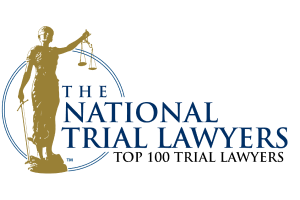Improper Use of Restraints in Nursing Homes
Restraining nursing home residents for convenience or punishment, as opposed to necessity, is considered an improper use of restraints under federal and Georgia law. In fact, Georgia law provides that a resident of a nursing home is to be free from physical, or chemical restraints, that inhibit or restrict mobility. The only time restraints are allowed is when it is determined by a physician after a physical exam that restraints are necessary to ensure the safety of the resident, other residents, or nursing home staff members. And even when restraints are necessary, they cannot be used for more than 35 days without a reevaluation by a physician. However, restraints are often used too readily and frequently in nursing homes, which can be dangerous and degrading for residents.
Types of Restraints Used in Nursing Homes
A physical restraint is any mechanical apparatus, material, device, or equipment that is attached to or adjacent to a nursing home resident’s body that restricts his or her freedom of movement and normal access to his or her own body. The resident generally cannot easily remove the restraint should he or she want to or need to. Many different types of items can be used as physical restraints, including:
- Vests
- Belts
- Straps
- Ties
- Hand mitts
- Lap cushions
- Lap trays or tables
- Specialized chairs
- Bedrails
With several of these devices, such as lap cushions and bedrails, it may not be immediately apparent that the item is being used as a physical restraint. One must look at the intended use for the item. For example, if a lap cushion is being used to help a resident read or eat, that is very different than a lap cushion being used to prevent a resident from leaning forward or getting out of bed. Likewise, if bedrails are installed for the sole purpose of keeping a resident in bed, the rails may be considered an improper physical restraint, but not if they are installed to help the resident turn in bed.
How Restraints Harm Nursing Home Residents
Obviously, unnecessary restraints may cause nursing home residents discomfort and pain. In addition, the loss of functionality that comes with being restrained can cause muscle atrophy, and weakened muscles can lead to decreased mobility and even the inability to move freely over time. On top of the physical effects restraints have on nursing home residents, there is often emotional and psychological harm associated with the improper use of restraints, including a lost sense of dignity and autonomy. The fact is that almost nobody prefers to be restrained.
Contact the Legal Team at KWF for Help after the Improper Use of Restraints
If you believe your loved one was the victim of improper or unnecessary use of restraints in a Georgia nursing home, please call the attorneys at Katz Personal Injury Lawyers in Atlanta at 404-460-0101 to schedule a complimentary consultation with one of our experienced nursing home abuse attorneys. We help victims of poor nursing home care in Atlanta, Savannah, Augusta, Valdosta and elsewhere obtain appropriate compensation for their physical and emotional injuries.







